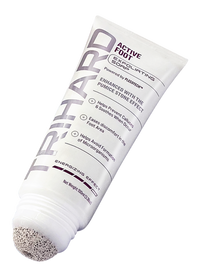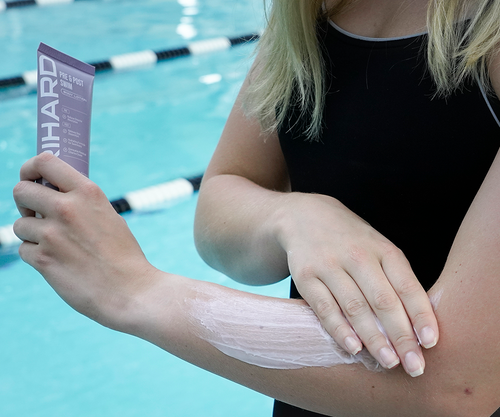Q&A With Therapist Erica Wilcox, LPC
Erica Wilcox is a Licensed Professional Counselor specializing in trauma recovery, anxiety, perfectionism recovery, and performance enhancement. She is a Certified Eye Movement Desensitization and Reprocessing (EMDR) Therapist and Consultant based out of Connecticut whose greatest superpowers are resiliency, compassion, and inspiring others for positive change.
Erica Wilcox is the Founder and CEO of Wilcox Wellness Center for Personal Growth, an online mental health counseling practice for teens, couples, and adults. She became an endurance athlete in her mid 30’s after becoming a mother and has never looked back.
Her favorite run distance is the half marathon and she will be completing her first 70.3 in June 2022. Erica speaks about mental health, “Realistic Self-Care for Women”, “The Art of Reinventing Yourself”, and “How to Get Yourself Out of a Funk.”
Please contact her at ewilcox@wilcoxwellness.com for keynote and workshop inquiries.
What to do when worried about mental health?
- Talk about It with people you trust
- Consult with a professional, don’t wait until it gets worse
- Rule out medical issues that could be contributing
- Show yourself compassion, What would you say to a friend or loved one?
What to do if worried about a friend or relative?
- Check in with them and talk about it. (Give examples of what you could say)
- Understand that they may not reciprocate but knowing that you are holding space is powerful. Still invite them to things.
- Provide resources if you can including suicide hotline, therapist directories
- Validate their experience but don’t make it all about you.
- Tell them what you love about them as a person.
Can swimming, training, or working out help mental health? (Will record this)
Yes and No.
Yes: Serotonin and Dopamine hits for positive moods. 20-30 min shows this is all we need. Community and connection when training with friends helps tone our vagus nerve. We are more emotionally fit when our vagus nerve is toned.
Social connection promotes ventral vagal state which is the state in our nervous system that allows us to feel physically and emotionally safe. Training outside also promotes well being and mental health because we get fresh air and vitamin D.

Source: The Movement Paradigm
Having a routine and goals promotes confidence and predictability. Movement allows us to metabolize stress especially movement with bilateral stimulation- the left/right movement we experience with swim, bike, run.
No: If you are sick, injured, or exhausted, overtraining and violating your limits will have a detrimental effect on mental health and physical health. Comparing yourself too much to others (time, distance, podiums etc) is also not supportive of being emotionally fit.
If the joy and fun loses its edge, it is time to change it up. If you are at risk for compulsive exercise or have a hx or current eating disorder, you have to pay special attention to your relationship with exercise.
What to do if suddenly lose interest in doing activities? What to do to motivate yourself?
Losing interest in activities that you usually enjoy can be a warning sign of depression. With that said, if the activity is solely focused on working out or training you may want to give these few tips and tricks a try and see if you feel different before seeking professional help:
1. Go Naked!
Ditch the data tracking gadgets and go swim, bike, run without your watch. (Keep in mind your safety when doing activities alone and without your watch. Many phone apps can track your activity live to send to a trusted loved one and always make sure you bring your phone in case of an emergency.)

2. Change up your timing
Normally a morning person? Try training mid afternoon or at night to change up your routine a bit. Going for a quick workout on your lunch break can give a good adrenaline rush if you have a hard timeline to get back to your work. Just make sure you actually eat a good lunch and don’t skip it to workout.
3. Take a break
A rest day or two or an entire week. Is your body sending you messages to slow down and rest that you are ignoring?
4. Do a different type of movement unrelated to your usual activities.
Take a yoga class, a pole dancing class, pilates, kickboxing, ballroom dancing, tai chi, jump rope, go to a smash room, whatever seems interesting!
Allow yourself to try something new or return to a childhood favorite. Laugh a lot in the process. Pretend you aren’t an athlete for the day and allow yourself to play like a child would.
5. Curate a badass playlist.
Create a playlist that makes you want to move and has inspiring themes and lyrics.
6. Do a different route or different location.
Exploring new places keeps our minds occupied on where to go next and is a great distraction from the periodic monotony of training. (If you are training inside for any reason, watching a movie or docuseries can also be helpful.)
7. Consistency is more important than motivation.
Don’t wait for yourself to be 100% motivated to follow through on training or working out. Consistency is what matters most, so set up your routine that consistency is achievable (ie: lay out your clothes the night before, plan exactly when your training will be that week,
8. Remember your WHY
9. Train with friends and make it fun.
10. Give Yourself Permission to Say No.
There is no award for the person who overtrains, exceeds their limits, or wants to change their mind. Take the pressure off of yourself and give yourself permission to say no to overextending yourself. You are allowed to change your mind at any time and that is OK. You are still worthy of love and belonging even if you are “performing.”

If you are experiencing overall low mood, irritability, loss of interest in activities you normally enjoy, sleep or appetite changes, weight changes, feelings of worthlessness or inappropriate guilt, this is a strong indicator of clinical depression that requires professional help.
If you are thinking about harming yourself please call the sucide hotline to speak with a trained professional tel:1-800-273-8255. There is also a text chat option and more information at National Suicide Prevention Lifeline.
How to treat and prevent mental illness?
The prevention of mental illness largely includes systemic changes. Racism, oppression, hustle culture, sexism, misogyny, xenophobia, fat phobia, trans and homophobia all have a direct impact on a person’s mental health.
Mental illness can also have a biological component, meaning that if someone in your family has a mental illness, you may be at a higher genetic risk to develop a mental illness. The way you were raised and childhood trauma also directly influences the likelihood of having mental illness.
Mental illness can also be influenced by your support system, socioeconomic status, health status, environment, relationships, and home/work life.
Prevention of mental illness begins with early intervention and having conversations with our children and each other about all the factors that play into mental health: boundaries, racism, substance use, healthy relationships, emotion regulation, consent, our relationship with food and movement, body image, communication, and self-care.
You do not need to have a diagnosed mental illness in order to benefit from mental health therapy. If you do have a mental illness, therapy can absolutely help. Some individuals find that a combination of psychotropic medication and therapy is a complete game changer.
Regardless, therapy is a great place to learn about yourself, get to the root issues that are causing you problems in your life now, heal unresolved trauma, and learn effective ways to cope and manage day to day stress.

Talking to friends, loved ones, or even a life coach can be helpful, but it is not the same as therapy.
Licensed therapists have earned their Master’s Degree (or higher) and have spent many additional years on advanced training, supervision, passing rigorous state licensing exams, and additional time and money invested for required extensive continuing education. Licensed therapists also closely follow ethical codes that others don’t.
There are different levels of mental health care in America: Outpatient, Partial Hospitalization, Inpatient, and Residential treatment. When people think about going to therapy, they most likely are thinking about private practice or community mental health outpatient level of care.
This is where you will work together with a therapist to address your mental health needs and most likely meet with them once per week for an hour. Some other therapists, like myself, work with clients on a more intensive level and meet for longer periods of time (ie: a half or full day).
Just as there are medical doctors that specialize in different areas of the body (an orthopedic surgeon for knees vs an ear, nose, throat doctor for instance) different therapists specialize in different areas of mental health and are trained in different approaches.

It can feel overwhelming to look for a therapist. The good thing is that a lot of therapists are now available online so you are not restricted to your drivable distance. It is important to remember that a therapist can only see clients in the state that they are licensed in.
For instance, because I am licensed in CT, whomever I am working with must be located in CT when I am providing therapy. This works great for out of state clients that wish to do intensive therapy and fly in to stay for a few days.
Here are a few questions that you can ask to help find the right fit for you:
- Do you accept my insurance? If not, what is your out of pocket rate?
- Do you have experience or specialized training in working with clients who struggle with the same problems as me?
- When is your availability?
- Do you have any advanced certifications or training?
- What is your favorite part of being a therapist?
You can visit MentalHealth.gov for more information about mental health facts.
What is a good way to cope with stress and anxiety?
There are so many ways we can learn to cope with stress and anxiety on a macro and micro level. I will tell you my top 3 favorites for big picture coping and little window coping. I use these all myself and I teach them to my clients as well.
Big Picture Coping:
- Sleep Hygiene: Doing the things necessary to get adequate sleep
- Boundary Setting: Not over committing yourself, knowing when to say No.
- Stay Hydrated and Well Nourished
In the Moment Coping:
- Mindfulness Skill: Notice 5 things you feel, 4 things you see, 3 things you hear, 2 things you smell, and 1 thing you can taste. This helps ground you back into the present moment.
- Short, intense movement bursts to help complete stress cycles and metabolize stress (like jumping jacks, dancing, burpees, high knees, a brisk walk)
- Big, long, deep breathing where the exhale is longer than the inhale.
Conclusion
What is important to know is that mental illness is never anyone’s fault, it is not a sign of weakness or moral failure, and that the more we talk about it and are educated about mental health and mental illness, the better we do! Normalizing mental health and having education, coping, professional care, and compassion for mental illness is critically important.
You invest a lot of time, money, and energy training and moving your body. Your physical training doesn’t have a leg to stand on if your mental health and fitness aren’t on board. It is wise, brave, and demonstrates your commitment to excellence in sport when you pay attention to and care for your mental health.
We hear that nutrition is the 4th discipline of triathlon. Mental health is the first. Mental Health, then swim, bike, run.


































Leave a comment